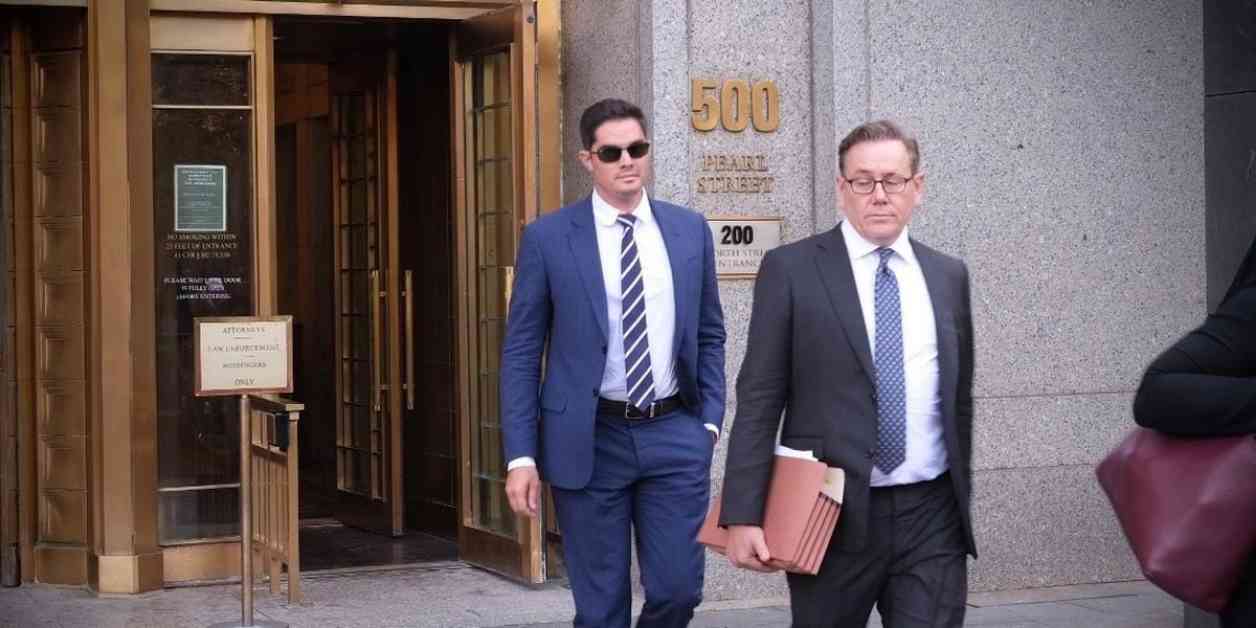A federal judge has threatened former FTX executive Ryan Salame with sanctions after he admitted to lying about prosecutors not making promises to him as part of his plea deal last year. Salame, who pled guilty to campaign finance violations and running an unlicensed money transmitting business in September 2023, was sentenced to 7.5 years in prison in May. The judge, Lewis Kaplan of the Southern District of New York (SDNY), stated that Salame could face consequences for providing false testimony during his plea allocution.
Salame claimed in a 32-page memorandum to Judge Kaplan that prosecutors had promised to cease any investigations into Michelle Bond, his long-time partner and mother of his child, as part of his plea deal. However, prosecutors refuted this assertion, maintaining that no such promise was made, either formally or informally. Emails shared by the Department of Justice indicated that there was no agreement to halt investigations into Bond. Despite this, defense attorneys’ emails suggested a potential breakdown in communication.
Bond, who has been charged with violating campaign finance laws for allegedly accepting illegal contributions from Salame and other FTX employees during her congressional campaign in 2022, faces a maximum sentence of 20 years in prison. Judge Kaplan expressed the need for time to deliberate on the matter and instructed Salame to report to prison on October 11.
Subheadings:
Prosecutors’ Response to Salame’s Claims
Prosecutors argued that Salame and his legal team were fully aware that the plea deal did not include any protection for Bond from investigation. They emphasized that no promises were made regarding the cessation of inquiries into Bond’s activities. Internal emails exchanged among prosecutors confirmed the absence of any such agreement. The Department of Justice maintained that the plea deal focused solely on Salame’s charges and did not extend to Bond. Defense Attorneys’ Perspective
Conversely, defense attorneys for Salame contended that there was confusion surrounding the terms of the plea deal. They pointed to their own emails, which indicated a belief that the agreement would shield Bond from ongoing investigations. The defense argued that the lack of clarity led to a misunderstanding between the parties involved. Despite the conflicting accounts, defense attorneys maintained that Salame’s plea was based on the understanding that Bond would be protected from further legal action. Judge Kaplan’s Decision and Implications
Judge Kaplan’s response to the conflicting narratives was measured, with a focus on upholding the integrity of the legal process. He underscored the seriousness of providing false information to the court and expressed his intent to deliberate on the appropriate course of action. By instructing Salame to prepare for prison on October 11, Judge Kaplan signaled the gravity of the situation. The potential for sanctions loomed over Salame, pending the judge’s final decision on the matter.
Conversely, defense attorneys for Salame contended that there was confusion surrounding the terms of the plea deal. They pointed to their own emails, which indicated a belief that the agreement would shield Bond from ongoing investigations. The defense argued that the lack of clarity led to a misunderstanding between the parties involved. Despite the conflicting accounts, defense attorneys maintained that Salame’s plea was based on the understanding that Bond would be protected from further legal action.
Judge Kaplan’s Decision and Implications
Judge Kaplan’s response to the conflicting narratives was measured, with a focus on upholding the integrity of the legal process. He underscored the seriousness of providing false information to the court and expressed his intent to deliberate on the appropriate course of action. By instructing Salame to prepare for prison on October 11, Judge Kaplan signaled the gravity of the situation. The potential for sanctions loomed over Salame, pending the judge’s final decision on the matter.
As the case unfolds, the implications for both Salame and Bond remain uncertain. The legal proceedings have shed light on the complexities of plea deals and the importance of clear communication between all parties involved. The outcome of this dispute will not only impact the individuals directly involved but also serve as a precedent for future cases of a similar nature.
In conclusion, the federal judge’s threat of sanctions against Ryan Salame underscores the significance of truthfulness and transparency in legal proceedings. The dispute over promises made during the plea deal highlights the challenges of navigating the intricacies of the justice system. As the case continues to unfold, the implications for Salame, Bond, and the broader legal landscape remain subject to Judge Kaplan’s deliberation. The outcome of this case will undoubtedly shape the way plea deals are negotiated and executed in the future.


















